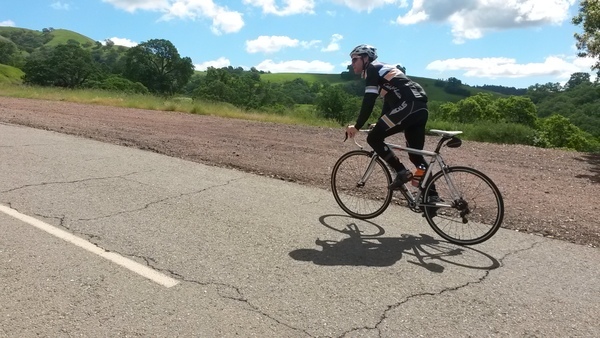
While tapering/rest is important in the context of one’s target events, regular rest days are a critical part of any solid training program. On the surface, it may seem like a silly question, but what exactly does “rest” mean, and how does it work for different athletes?
In a word, training is adaptation. Doing your workouts provides a training stimulus, and the body’s response is to adapt to that load. The time when the actual adaptation takes place, however, is when you are resting. This is why pro athletes often nap after workouts, or do two workouts per day – the rest allows them to recover better so that they can get more out of the next training session. Rest speeds their adaptation, thus making them stronger, faster.
As logical as that may seem, many athletes don’t make the most of their rest periods. Most of us have obligations outside of athletics – school, family, chores – which make rest a secondary consideration. Also, it’s our natural tendency to treat training as training and rest as wasted time. The first step to optimizing your rest is to think of it as the time in which you get stronger.
Next, figure out which training/rest ratios work best for you. This depends on 1) your rate of recovery and 2) the type of workouts you are doing. For example, if you’re an athlete that is endurance focused and you’re doing a lot of short, hard intervals, you may need more time to recover and benefit from those intervals than if you’re simply doing lots of long endurance miles. Generally, a 3/1 ratio of days on to days off is a good starting point. Some athletes find they go faster on 2 days of training to 1 day of rest. Experiment and find out what works for you. Keep in mind that this ratio can change with your training phase and with age.
Finally, when you rest, you should truly be resting. Things like going hiking or waterskiing are not rest day activities. A perfect rest day is a day on which you do a whole lot of nothing, stay nicely hydrated, eat well-balanced meals, take a nap or two, get a massage, and go to bed early. This may be impractical most of the time, but it’s possible to do at least a few of these things.
There are also a few things you can do to increase your recovery, like simply not spending too much time standing up or outside in hot sunshine. Simply put, the easier you make it for your body to make the most of your training, the more you will get out of that training. Optimizing your rest is optimizing your training!